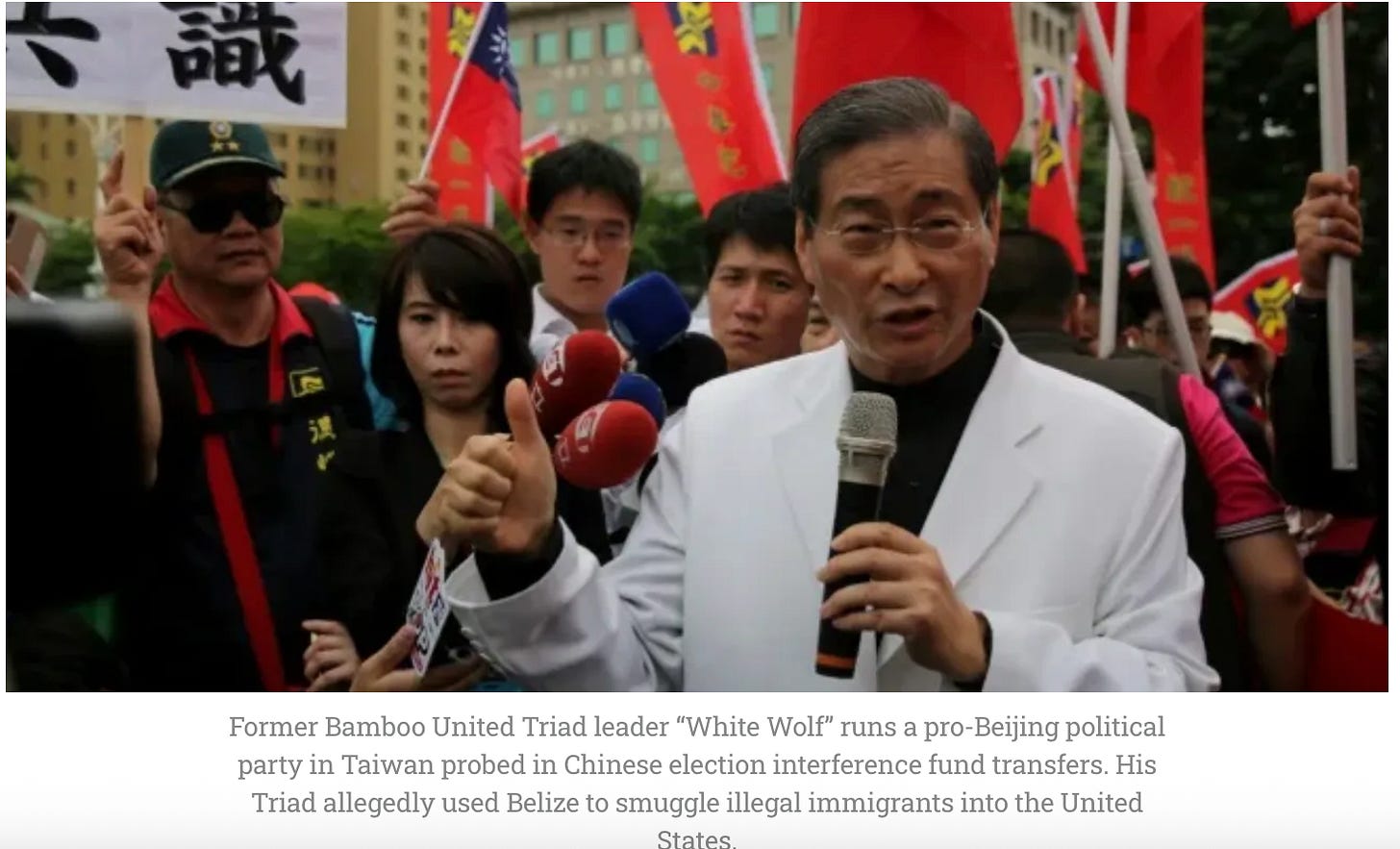Inside Xi’s Fifth Column: How Beijing Uses Gangsters to Wage Political Warfare in Taiwan — and the West
A new Jamestown Foundation report details how China’s Ministry of State Security and allied triads have been used to subvert Taiwan’s democracy as part of Beijing's united front.
Editor’s Note
The Bureau has previously reported on how Chinese state-linked crime networks have exploited Canada’s real estate market, casinos, and diaspora associations, often under the cover of uni…



